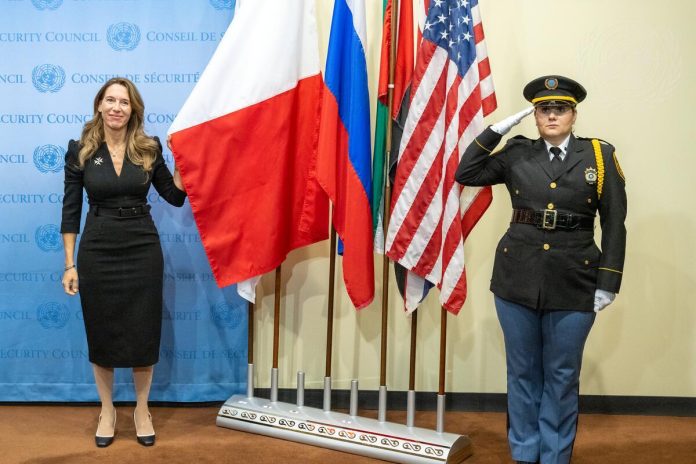Malta, one of the UN’s smallest member states, takes over the presidency of the UN Security Council on 1 February. The presidency of the Council is held by each of the members in turn for one month. It involves setting the agenda, presiding over its meetings and overseeing any crisis.
Malta took a seat as a non-permanent member of the UN Security Council on 1 January 2023.
Although Malta, with a population of 518,000 is the EU’s smallest Member State, it is not the smallest country to have had a seat on the Security Council.

Its population is almost five times bigger than that of St. Vincent and the Grenadines (104,332), which served on the Security Council from 2020-2022. Malta’s population is also similar in size to Capo Verde (588,000), a Security Council member between 1992-1993.
Security, sustainability and solidarity
There are 15 Council members in total. Five of these — China, France, the Russian Federation, the United Kingdom and the United States — are permanent members. The other 10 are elected by the General Assembly for two-year terms.
Malta, Ecuador, Japan, Mozambique and Switzerland were elected to the Security Council by the General Assembly last summer, for the next two years 2023-2024. Malta received 185 votes, which means 97.3% of votes cast. It is the second time Malta has been elected to the Council, after previously serving 1983-1984, but Switzerland and Ecuador are newcomers to the Council.
Malta’s Minister for Foreign Affairs Ian Borg said in a statement after the election to the Council that Malta will be following three important principles: security, sustainability and solidarity.
“In our term in this Council we will seek to continue pushing forward issues such as child protection, the threat of climate change, the importance of literacy as a way of overcoming conflicts, and the important role of women among others”, Mr. Borg said.

